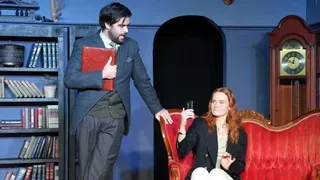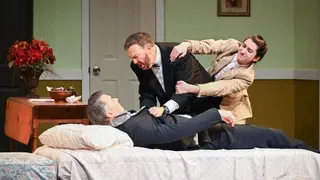May 4, 2021
Review: Laurie Anderson's 'Sisters with Transistors' Shines a Light on the Unsung Women of Electronic Music
Karin McKie READ TIME: 1 MIN.
Laurie Anderson is an iconic musician and nuanced narrator, skills she brings to bear in the engrossing documentary "Sisters with Transistors." British director Lisa Rovner shines a light on and points a mic at the unsung women pioneers of electronic music in this polished and trippy 84-minute film that's chock-a-block with mid-century archival footage.
Many of the women creators were classically trained musicians who were drawn to electronica because they could compose and perform their experiments directly, without necessarily having to navigate misogynist record companies, radio stations, and concert hall bookers. They could be sole arbiters of the newly-created and customized "warm, alive and sensitive machines," many little more than wires in a suitcase.
Several of the innovative composers were inspired by industrial sounds, like air raid sirens during the Blitz, plus airplane and automobile noises, including the static between radio stations. The women played with oscillators, turntables, tape loops, and rows of tape recorders ganged together. Some created their own collectives and studios, including at the BBC, where the enigmatic "Doctor Who" theme emerged after 40 days of work, alongside avant garde and science fiction movie scores, which writer Anaïs Nin said "sounded like a molecule had stubbed its toe."
Anderson, via Rovner, pays homage to her forebears, the trailblazing women of electronic music who "didn't want to push around dead white men's notes" but instead create "intersections of science, life and sound."
"Sisters with Transistors is available on demand through May 20 at Metrograph
Karin McKie is a writer, educator and activist at KarinMcKie.com







